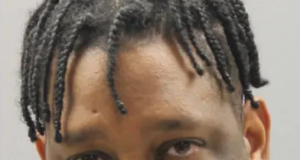Tens of thousands of pro-democracy protesters extended a blockade of Hong Kong streets on Tuesday, stockpiling supplies and erecting makeshift barricades ahead of what some fear may be a push by police to clear the roads before Chinese National Day.
Riot police shot pepper spray and tear gas at protesters at the weekend but withdrew on Monday to ease tension as the ranks of demonstrators swelled. Protesters spent the night sleeping or holding vigil unharassed on normally busy roads in the global financial hub.
Throughout the night, rumors rippled through crowds of protesters that police were preparing to move in again. As the sun rose many remained wary, especially on the eve of Wednesday's anniversary of the Communist Party's foundation of the People's Republic of China in 1949.
"Many powerful people from the mainland will come to Hong Kong. The Hong Kong government won't want them to see this, so the police must do something," Sui-ying Cheng, 18, a freshman at Hong Kong University's School of Professional and Continuing Education, said of the National Day holiday.
"We are not scared. We will stay here tonight. Tonight is the most important," she said.
The protesters, mostly students, are demanding full democracy and have called on the city's leader Leung Chun-ying to step down after Beijing on Aug. 31 ruled out free elections for Hong Kong's leader, known as the Chief Executive, in 2017.
China rules Hong Kong under a "one country, two systems" formula that accords the former British colony a degree of autonomy and freedoms not enjoyed in mainland China, with universal suffrage set as an eventual goal.
Protesters massed in at least four of Hong Kong's busiest areas, including Admiralty, where Hong Kong's government is headquartered, the Central business district, Causeway Bay, one of the city's most bustling shopping areas, and the densely populated Mong Kok district in Kowloon.
Organizers said as many as 80,000 people thronged the streets after the protests flared on Friday night. No independent estimate of numbers was available.
"I must stress that the events happening now cannot be attributed to the students or Occupy Central. It has evolved into a civil movement," said Alex Chow, the leader of the Hong Kong Federation of Students.
Protesters set up supply stations with water bottles, fruit, crackers, disposable raincoats, towels, goggles, face masks and tents, indicating they were in for the long haul.
Some lugged metal road barricades into positions on the edge of crowds, presumably to slow a police advance. In at least one location, several minivans and a truck were parked in rows in an apparent effort to block a road.
EXERCISE RESTRAINT
Communist Party leaders worry that calls for democracy could spread to the mainland, and have been aggressively censoring news and social media comments about the Hong Kong demonstrations.
The movement presents Beijing's ruling Communist Party with a difficult challenge. Cracking down too hard could shake confidence in market-driven Hong Kong, which has a separate legal system from the rest of China. Not reacting firmly enough, however, could embolden dissidents on the mainland.
The outside world has looked on warily, concerned that the clashes could spread and trigger a much harsher crackdown.
"The United States urges the Hong Kong authorities to exercise restraint and for protesters to express their views peacefully," White House spokesman Josh Earnest told a daily briefing on Monday.
Human Rights Watch voiced concern about police use of force, and called on Leung to "show the kind of tolerance for peaceful protest for which Hong Kong is known, not the intolerance for it in the mainland".
The demonstrations, labeled "illegal" by China's Communist-run government in Beijing, are the worst in Hong Kong since China resumed its rule over the former British colony in 1997.
An editorial in the state-run Global Times newspaper said on Tuesday the government would not change its policy "just because of the chaos created by the oppositionists", and it suggested that the authorities might let the protests run their course.
"Without changing the earlier decision, the central and Hong Kong governments can exercise a certain degree of restraint in handling the shutdown of the city's financial areas, so as to leave some time for local people to realize the harm done by the protesters' illegal acts," it said.
The protests are expected to escalate on Wednesday, with residents of the nearby former Portuguese enclave of Macau also planning a rally.
"Maybe the police are planning a bigger operation for the coming night, so most of them need to rest and prepare," Stanley Fong, a 22-year-old property agent, said of the relative lack of police out on Monday night.
RESOLUTELY OPPOSED
Televised scenes of the chaos in Hong Kong over the weekend have already made a deep impression outside the financial hub.
That was especially the case in Taiwan, which has full democracy but is considered by Beijing as a renegade province that must one day be reunited with the mainland. Taiwan President Ma Ying-jeou said Beijing needed "to listen carefully to the demands of the Hong Kong people".
Britain said it was concerned about the situation and called for the right of protest to be protected.
Earlier, Chinese Foreign Ministry spokeswoman Hua Chunying said Beijing was "resolutely opposed to any country attempting in any way to support such illegal activities like 'Occupy Central'."
Banks in Hong Kong, including HSBC (HSBA.L), Citigroup (C.N), Bank of China (601988.SS), Standard Chartered (STAN.L) and DBS (DBSM.SI), shut some branches and advised staff to work from home or go to secondary branches on Monday.
Financial fallout from the turmoil has been limited so far. Hong Kong shares .HSI ended down 1.9 percent on Monday.
The protests have spooked tourists, with arrivals from China down sharply ahead of the National Day holidays, which are normally a peak. On Monday, Hong Kong canceled the city's fireworks display over the harbor, meant to mark the holiday. The United States,Australia and Singapore issued travel alerts.




